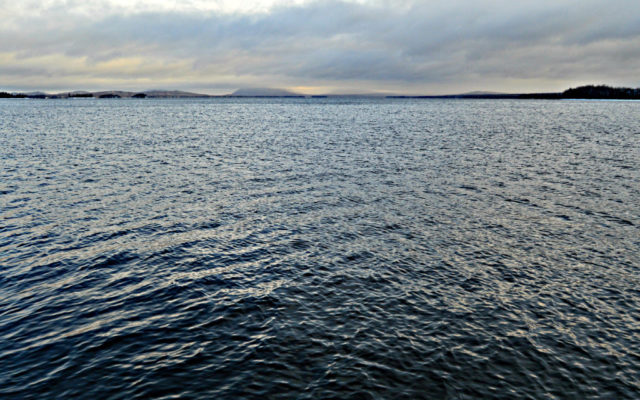
Experts offer up some cold-water tips to help you catch more fish
Anglers who head out to fish Maine’s ponds, lakes and brooks early in the open-water season have learned that for several weeks, the fishing can be quite slow. The cold water has left the fish sluggish, it seems, and it might take just the right fly or bait to garner any interest from a passing fish.
Since open-water fishing season began early in Maine this year, giving us some COVID-19 respite, the BDN decided to ask some of the state’s fishing experts — biologists and guides alike — for some tips that might tip the scale in your favor should you decide to wet a line in the coming days and weeks.
And as has become the custom in these changing times, make sure to practice all relevant social distancing rules. Go no closer than six feet to anybody else you may encounter, and if you’re fishing with a buddy, drive to the water separately. For safety’s sake, a life jacket is always a good idea, especially when you’re out in a boat.
Low and slow
From registered Maine guide Jeff McEvoy, the owner of Weatherby’s outdoor resort in Grand Lake Stream: For pretty much all species right now, slow and deep. Full-sink or sink-tip lines, cast across current with a mend to allow fly to sink and swing. Then slow retrieve. We filmed a show for Orvis Guide to Fly Fishing last May that will be available for viewing on their YouTube channel on April 5. It talks specifically about tactics for pre-spawn smallmouth bass.
Another good tip for these large female [fish] is to fish during the brightest, warmest, part of the day at the mouths of streams, rivers, brooks where they enter a lake or pond. Often there can be groups of feeding smallmouth or largemouth. Typically this happens within a week of ice out.
Target stream mouths
From Maine Department of Inland Fisheries and Wildlife fisheries resource supervisor Gregory Burr of the Grand Lake Region: It can be hard fishing at this time of year because the water is so cold,and the fish are lethargic. You can still catch fish in the larger lakes by trolling live bait, lures or flies trolled slow but your catch rate will be lower until the water temperatures warm up to between 50 and 65 degrees. The exception to this is when fish in the larger lakes congregate off the mouths of smelt spawning tributaries feeding on staging smelts getting ready to spawn. This can trigger an active feeding frenzy.
I highly recommend fishing the small brook trout ponds first as these small shallow ponds warm up quicker than the larger lakes and most have been closed to ice fishing so there are good numbers of fish ready to bite. As these small ponds warm, insects and baitfish get active in the shallows, particularly along the south facing shores that are exposed to the sun most all of the day.
Find one, find many
From registered Maine guide Kevin McKay of Maine Fishing Adventures:
Something that years of early season fishing has had in common from Rangeley to Grand Lake Stream to early smallmouth bass fishing, when I find fish there are usually a lot of them together and usually the water is deeper and slower.
When trout fishing I will nymph, always a big black stonefly and a smaller nymph dropper. When fishing for bass I will throw a sink tip line with a baitfish pattern and strip very slowly around drops, or try eddys where the water will be slower and warmer. For pike I target shallow, warmer areas where bait will be in lakes, or eddys in rivers.
Enjoy the experience
From registered Maine guide Dan Legere of the Maine Guide Fly Shop in Greenville: If fishing is about catching, you’re playing the wrong game, especially this early in the season. Fishermen who enjoy every day on the water have one basic fundamental philosophy. We truly enjoy the wonders of Mother Nature and all she has to offer. It’s not always about the fish.
It’s the eagle soaring overhead, the loon and their lovely cries from the bay, the mink hunting along the stream’s banks, and the pileated woodpecker that all add to the experience. We consider catching fish to be the added bonus for a day spent afield.
With that in mind, consider early season open water fishing to be a wonderful outing and not about catching … especially during these extremely trying times.
I have jumped the gun and have gone fishing way too early, way too many times, but have a great time anyway.
Sea-run brookies
From registered Maine guide Kevin Tracewski of Tracewski Fishing Adventures: In a normal year, some of the small brooks on the coast have sea-run brook trout that inhabit their lower reaches in April, and these fish can be fun to catch on super light tackle using a worm or worm/spinner combo. This isn’t a normal year, because we have a light snow pack, and have had very little rainfall, so all our streams are running way lower than normal. That could change quickly though. And if it does, some trout might show up.
I love fly fishing and fish trout exclusively with flies during all times of year but April. Very early on, it’s tough to get a trout, whose metabolism isn’t cranked up yet, to chase a fly. So small worms on light line is your best bet.
Wait for later
From DIF&W fisheries resource supervisor Kevin Dunham of the Penobscot Region: The only tip I have for catching more fish is to stay home until the water warms up and spring snowmelt subsides.